Blackjack odds help you understand the real chances of winning, losing, or pushing in every hand you play. Knowing the numbers behind the game lets you make smarter decisions, manage risk, and avoid common traps that cost players money.
In this guide, we break down the odds of various outcomes, show how rule changes affect your chances, and explain which versions of blackjack give you the best shot as a skilled player or beginner.
In the article
- 1 What Are Blackjack Odds?
- 2 Blackjack Terminology Explained for Beginners
- 3 Odds of Winning in Blackjack
- 4 Blackjack Odds Chart
- 5 Blackjack Player Odds and Bust Probability
- 6 Dealer Odds and Bust Probability
- 7 How to Improve Blackjack Odds
- 8 How to Reduce the House Edge
- 9 Blackjack Return-to-Player (RTP) Explained
- 10 Odds of Common Blackjack Game Variants
- 11 Blackjack Side Bet Odds
- 12 Impact of Rule Variations on Odds
- 13 Where Can You Play Blackjack Online?
- 14 Final Thoughts: Play with the Odds in Mind
- 15 Blackjack Odds FAQ
What Are Blackjack Odds?
Blackjack odds refer to your likelihood of winning against the dealer under specific rules and scenarios. These odds depend on the number of decks in play, the dealer’s actions, and the choices you make in each hand.
They’re usually expressed as a ratio — like 2 to 1 for a blackjack payout — or as percentages, such as a 42% chance of winning a round when using perfect strategy. Understanding these odds helps you avoid high-risk plays and focus on consistent, profitable decisions.
Blackjack Odds vs Probability
While often used interchangeably, blackjack odds and probability are not the same. Odds are expressed as ratios (e.g. 2:1), while probability is shown as a percentage (e.g. 33%).
For example, if you have a 1 in 13 chance of drawing an Ace, the probability is about 7.7%, and the odds are 12:1. Understanding both terms helps you evaluate risk and reward more accurately at the table.
House Edge in Blackjack
The house edge is the built-in advantage the casino has over you. In blackjack, it’s one of the lowest among casino games — around 0.5% if you use perfect strategy. That means the casino expects to win 50 cents for every $100 wagered.
However, the house edge increases if you make poor decisions, take side bets, or play at tables with unfavorable rules like 6 to 5 blackjack payouts. Knowing how rules and strategy affect this edge is key to keeping it as low as possible, and gaining a statistical advantage.
Blackjack Terminology Explained for Beginners
Before we go into the nitty-gritty of blackjack odds, blackjack probability, and other mathematical details, we must shed light on some of the terms that you’ll encounter along the way. If you’re new to playing blackjack online, here are some terms you’ll commonly come across, what they mean, and how they can affect your gameplay of one of the most popular casino games:
| Blackjack Term | What Does it Mean? |
| Hand | These are the cards that are dealt to you or the dealer at the start of a game. |
| Hit | Here, you ask for another card. Used when your hand total is low and you wish to increase it. |
| Stand | Keep your current cards and end your turn. Ideal if adding another card increases your chances of going over 21. |
| Double Down | Increase your initial bet by 100%. In return, you receive an extra card, and you must stand for that round. |
| Split | Divide a pair of similar cards and bet on each individually. Used when your first two cards are the same |
| Surrender | Give up half of your hand and end the hand immediately. Suitable for when you have a weak hand and are likely to lose. |
| Push | This is a tie between you and the dealer’s hand. When this happens, your original bet is refunded. |
| Bust | Happens when you get a hand over 21; results in an immediate loss. |
| Blackjack | This is a hand consisting of an Ace and a card with a value of 10 (a 10, Jack, Queen, or King). |
| Hard Total | This is a hand that doesn’t contain an Ace or an Ace counted as 1 to prevent busting. |
| Soft Total | This is a hand that contains an Ace counted as 11. |
| Insurance | This is a side bet option that’s offered when the dealer presents an Ace card. Here, you bet that the dealer has a blackjack, but the payout for a successful wager is only 2:1. |
| Up-card | This is the card shown by the dealer at the start of a hand. Influences your strategy moving forward. |
| Shoe | A container that holds multiple card decks. Influences the house edge. |
| House Edge | This is the percentage profit that the casino expects to make from each game of Blackjack. |
Odds of Winning in Blackjack
Under standard rules and perfect strategy, your odds of winning a blackjack hand are about 42%, losing around 49%, and pushing roughly 9%. These numbers shift depending on house rules, your decisions, and the number of decks in play.
Getting a natural blackjack pays 3:2 at most tables – giving you an instant edge when it happens. But even without a natural, strategy-based decisions consistently reduce losses and increase win probability.
Blackjack Odds Chart
The chart below shows the typical blackjack odds of different outcomes in a multi-deck game where the dealer stands on soft 17 and blackjack pays 3:2.
| Outcome | Odds | Probability (%) |
| Player Wins | 1.06 to 1 | 42.22% |
| Dealer Wins | 1.22 to 1 | 49.10% |
| Push | – | 8.48% |
| Player gets blackjack | 1.5 to 1 | 4.75% |
| Dealer gets blackjack | – | 4.83% |
| Player busts | – | 17% (avg) |
Blackjack Player Odds and Bust Probability
Every time you hit in blackjack, there’s a risk of going over 21 — and that risk increases based on your current hand total. Knowing your probability of busting helps you decide when it’s safer to hit or stand.
Here’s a breakdown of the average bust rates for each hand total:
| Player Hand Total | Bust Probability (%) |
| 11 or less | 0% |
| 12 | 31% |
| 13 | 39% |
| 14 | 56% |
| 15 | 58% |
| 16 | 62% |
| 17 | 69% |
| 18 | 77% |
| 19 | 85% |
| 20 | 92% |
Dealer Odds and Bust Probability
The dealer’s bust probability depends entirely on their upcard. When the dealer shows a low card (2 through 6), they’re more likely to bust. High cards (7 through Ace) put more pressure on you to play aggressively or defensively.
Here’s a breakdown of the average dealer bust rates based on their upcard:
| Dealer Upcard | Bust Probability (%) |
| 2 | 35% |
| 3 | 37% |
| 4 | 40% |
| 5 | 42% |
| 6 | 42% |
| 7 | 26% |
| 8 | 24% |
| 9 | 23% |
| 10 | 23% |
| Ace | 17% |
When the dealer shows 4, 5, or 6, the odds are in your favor — so standing on weaker hands can be the best move. Against a 10 or Ace, you’ll often need to take more risks to stay in the game.
How to Improve Blackjack Odds
Blackjack is a highly strategic table game, and with the right gameplay technique, you can get a guaranteed payout whenever you play. Here are some tips you can incorporate to increase your odds of winning blackjack when playing online or at Las Vegas casinos:
- Prioritize tables that offer a 3:2 payout on blackjack over 1:1 tables. With 3:2 tables, you can shave 1.4% off the house edge, which is significant for your potential profit.
- Go for tables that allow you to double down on any two cards or re-split aces after a split. This improves your chances of hitting 21 on every new hand, protects you against soft totals, and removes up to 0.2% from the house edge in the long run.
- Follow basic strategy charts to make optimal decisions on when to hit, stand, double down, and split, depending on your hand.
- Avoid Insurance and 21+3 side bets, as they typically have higher house edges that can reduce your winnings.
- Opt for single and double-deck blackjack variants when possible, as they usually offer lower house edges compared to six or eight-deck shoes.
How to Reduce the House Edge
While you can’t eliminate the house edge, you can shrink it to less than 0.5% by making smart choices. These small tweaks can make a big difference over hundreds of hands whether you’re playing at online casinos or land-based ones.
Here’s how to reduce the edge and gain a slight advantage to make more money:
- Use basic strategy every hand — no guessing.
- Avoid side bets like insurance or 21+3 — they carry a much higher house edge.
- Choose games with favorable rules, like 3:2 payouts for blackjack, dealer stands on soft 17, and the option to double after a split.
- Stick to blackjack tables with fewer decks when possible — single-deck and double-deck games typically offer better odds.
- Manage your bankroll and avoid emotional play.
Blackjack Return-to-Player (RTP) Explained
Return-to-Player (RTP) is the percentage of your wagered money you can expect to win back over time. In blackjack, the RTP can reach 99.5% or higher if you use perfect strategy — making it one of the most player-friendly casino games.
RTP is the inverse of the house edge. So, if the house edge is 0.5%, the RTP is 99.5%. A higher RTP means better value for your money.
Many offshore casinos offer blackjack games with excellent RTP, especially when they feature player-favorable rules. Just make sure the site is licensed and uses certified RNGs or live dealers for fair play.
Understanding RTP helps you pick the right games and avoid options that quietly eat into your bankroll.
Odds of Common Blackjack Game Variants
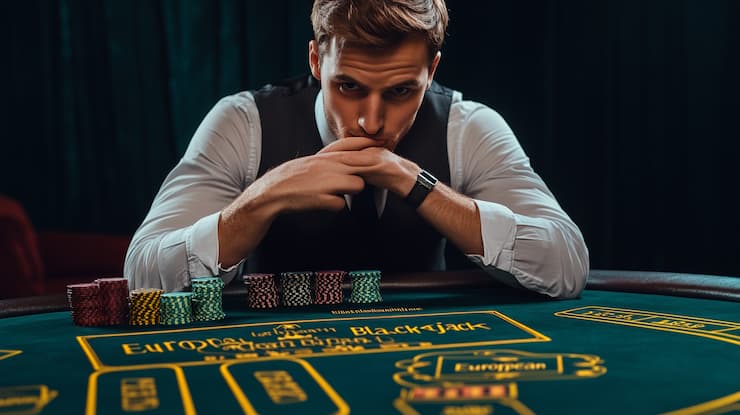
You’ll notice that the best gambling sites online feature different types of blackjack games. Each variation of blackjack comes with its own rules, and those rules impact your odds. Here’s how some of the most popular versions compare:
Classic Blackjack
The standard game with 1–8 decks, 3:2 payouts, and basic rules. RTP is typically 99.5% with perfect strategy.
European Blackjack
Uses 2 decks and the dealer only checks for blackjack after players finish their turns. This increases the house edge slightly.
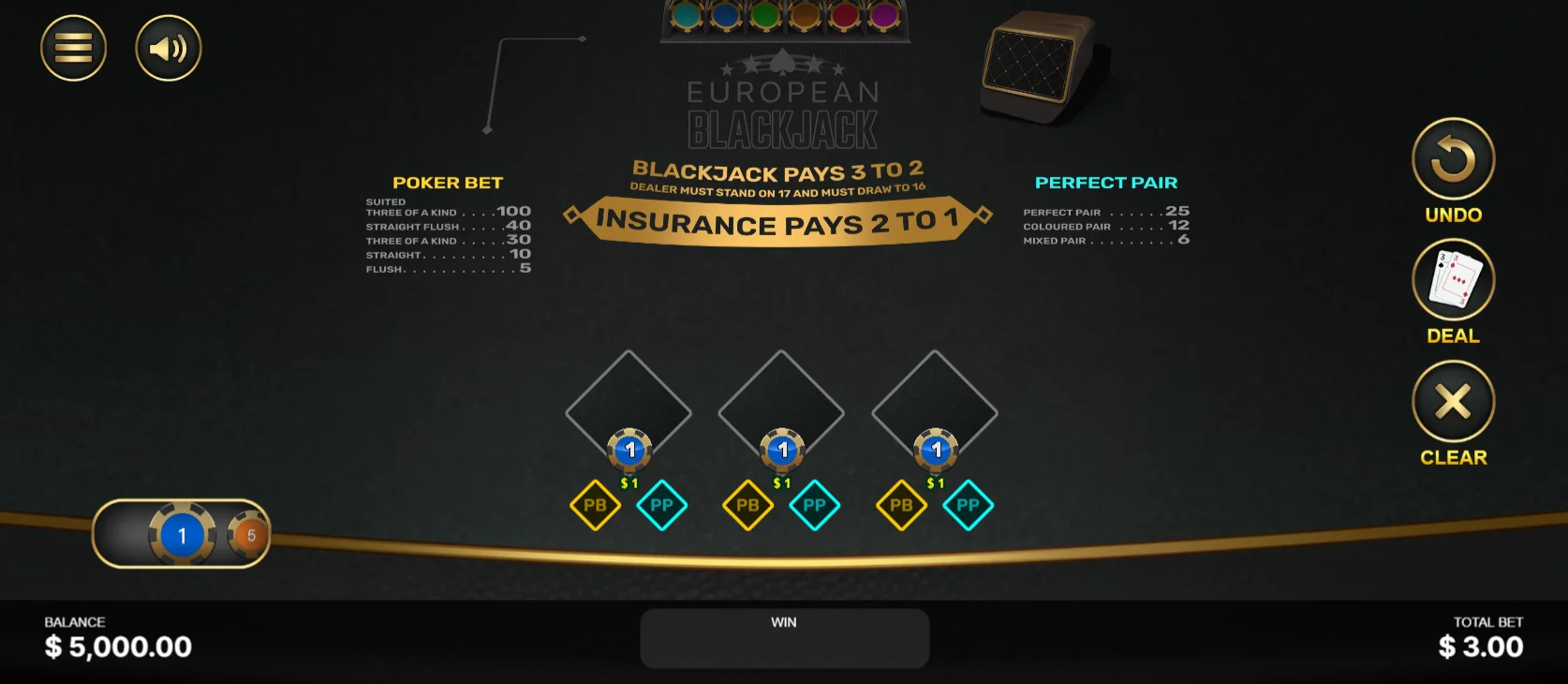
Blackjack Switch
Lets you switch cards between two hands, but blackjacks pay 1:1 and the dealer hits on soft 17 — which increases the house edge.
Free Bet Blackjack
You can double and split for free, but blackjacks only pay 6:5 and the dealer often pushes on 22 — reducing your overall odds.
Face Up 21
There is no hole card, so both dealer cards are visible. Sounds good, but blackjacks pay even money, and the dealer wins all ties except blackjack.
Online Blackjack
Includes RNG games and live dealer tables. Offshore casinos often offer competitive odds, especially on games with 3:2 payouts and favorable rules.
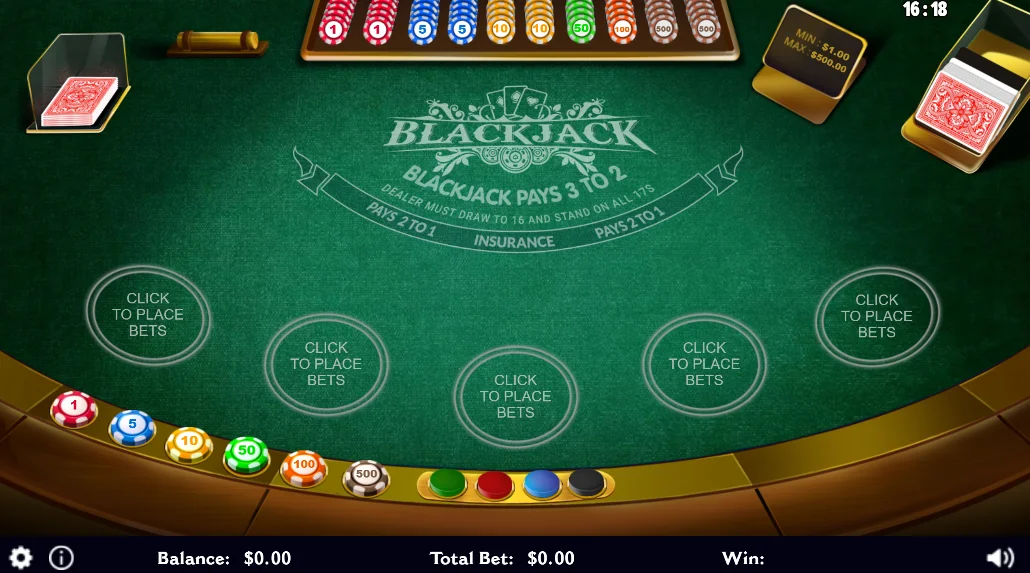
Electronic Blackjack
Automated versions with instant dealing — odds depend on the game setup.
Live Dealer Blackjack
Streamed in real-time with human dealers. Odds are close to classic blackjack if rules are favorable.
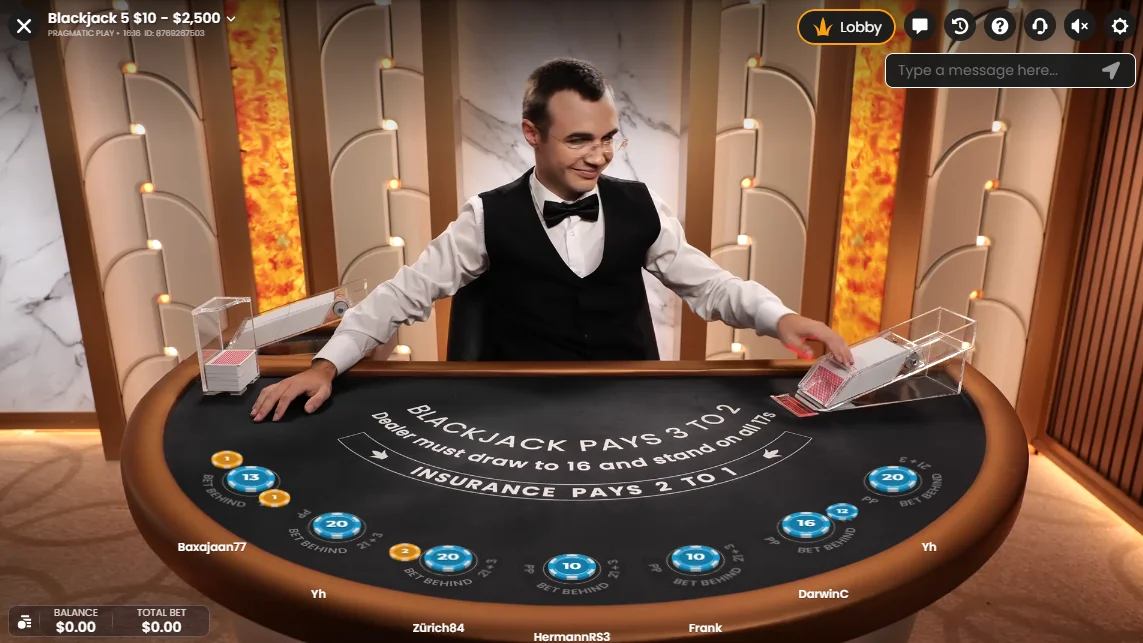
Blackjack Side Bet Odds
Side bets can be exciting, but they come with much worse odds than the main game. While the potential payouts look appealing, the house edge is often much higher — sometimes over 10%. Even at the best payout casinos, these bets offer lower long-term value, so it’s smart to approach them with caution.
Here’s a breakdown of common side bets and their odds:
Insurance
Pays 2:1 if the dealer has blackjack. Despite the payout, the house edge is around 7%. Not recommended unless you’re counting cards.
21+3
Combines your two cards and the dealer’s upcard into a poker hand. Big payouts possible, but house edge ranges from 3% to over 10%, depending on the variant.
Perfect Pairs
Pays if your first two cards are a matching pair. Odds of hitting an exact match are low, and the house edge is typically 5%–11%.
Bust It
Pays when the dealer busts. Payouts rise the more cards it takes, but odds of hitting high-tier wins are slim.
Lucky Ladies
Pays if your first two cards total 20 — higher payouts for suited or matching face cards. House edge can exceed 17%.
Side bets offer flash, not value. If you’re focused on long-term gains, stick to the main game.
Impact of Rule Variations on Odds
Blackjack rules vary between tables — and even small changes can shift the odds significantly. Knowing how certain rules affect the house edge helps you choose the best payout casinos and avoid games that quietly reduce your chances.
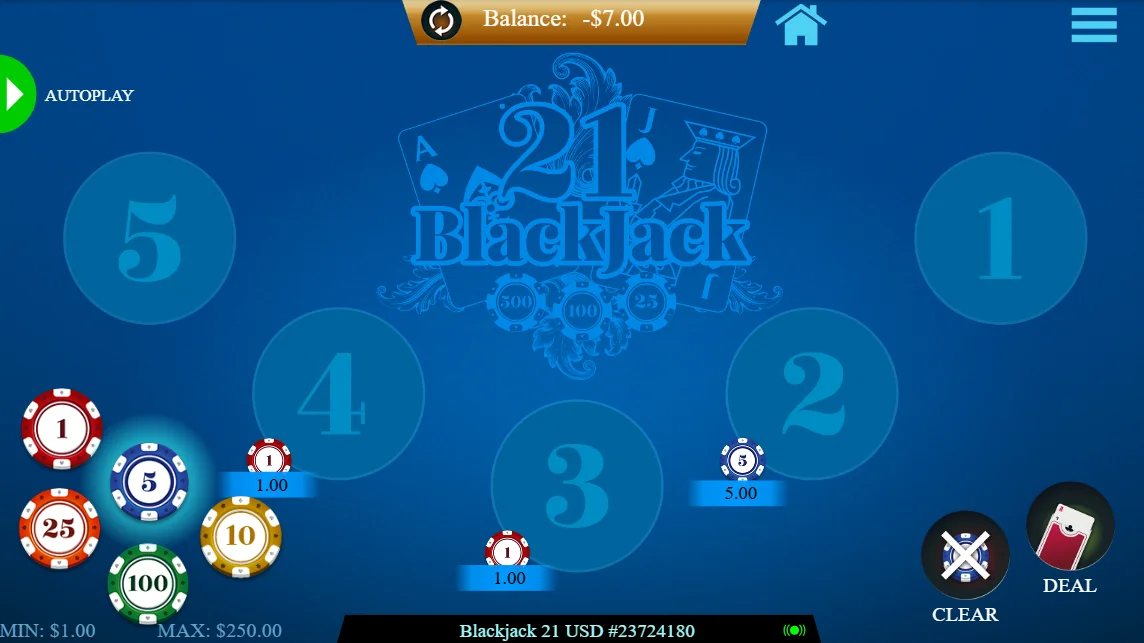
6 to 5 Blackjack
Blackjack pays 6:5 instead of 3:2, increasing the house edge by about 1.4%. Always avoid this rule if you want strong returns.
Number of Decks Used
More decks slightly increase the house edge. A single-deck game offers the best odds, while 6–8 deck games favor the house more. Multi-deck games also reduce the effectiveness of card counting.
Surrender
Early surrender allows you to fold your hand and lose half your bet before the dealer checks for blackjack — lowering the house edge. Late surrender is still better than nothing and can reduce long-term losses in tough hands.
Doubling Rules
If the table allows doubling on any two cards, or after a split, the odds improve. Restrictions — like only doubling on 10 or 11 — increase the house edge.
Splitting Options
The more flexible the splitting rules, the better for you. Look for games that allow re-splitting Aces and multiple splits per hand. Limited splitting rules give the house more control.
Where Can You Play Blackjack Online?
Blackjack is a popular table game that you’ll find at any online casino; however, the platforms listed below stand out as the top sites to play blackjack online with their trusted software, multiple RNG and live blackjack variants, and blackjack-specific bonuses:
- BetWhale
- Raging Bull
- Black Lotus
- Red Dog
- Lucky Red
- Slots of Vegas
- BC Game
- BUSR
- BetNow
- Wild.io
Final Thoughts: Play with the Odds in Mind
Understanding blackjack odds puts you in control. It helps you make smarter bets, avoid risky side plays, and choose tables with better rules. The best payout casinos combine strong RTP, fair blackjack rules, and transparent odds — giving you the best shot at walking away with profit.
Stick to basic strategy, avoid high-edge side bets, and always check the table rules. With the right knowledge, blackjack becomes a game of skill, not chance, unlike other games.

